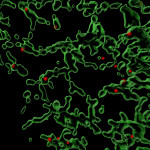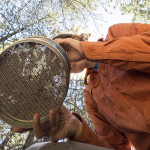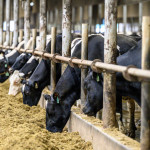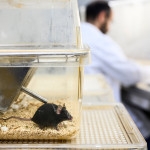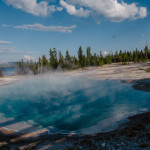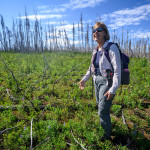Tag Research
UW–Madison receives $150 million grant to to lead nationwide Alzheimer’s disease study
The five-year study will provide state-of-the-art imaging and blood-based biomarkers for researchers around the world to study and advance the field of Alzheimer’s and related dementias. The work is also designed to shed light on mixed dementia, where more than one neurological disease is contributing to dementia. Read More
UW–Madison scientists reveal the inner workings of an essential protein trafficking complex
The discovery could eventually help researchers better understand and develop new treatments for diseases like cancer, diabetes and those that cause immune dysfunction. Read More
Stem cell technology developed at UW–Madison leads to new understanding of autism risks
Ashton says researchers using technologies like the RosetteArray are finding that the risk factors for autism spectrum disorder are boiling down to a couple of core pathways, that seem to have roles very early in human brain development, which is helpful information as researchers work on treatments. Read More
Newly developed material gulps down hydrogen, spits it out, protects fusion reactor walls
The advance, detailed in a paper published recently in the journal Physica Scripta, could enable more efficient compact fusion reactors that are easier to repair and maintain. Read More
Science stories that stood out on campus in 2023
From the floor of a lodgepole pine forest to the depths of the Milky Way, here are some of the stories that awed and inspired us this year. Read More
Zapping manure with special electrode promises an efficient method to produce fertilizers, other chemicals
The researchers' preliminary analyses show it could offer considerable benefits by cutting water and air pollution while simultaneously creating products that farmers could use or sell. Read More
UW–Madison remains 8th in research ranking, surpasses $1.5 billion in research expenditures
The NSF today released its Higher Education Research and Development (HERD) data showing a 10% increase in research expenditures at UW–Madison over the previous fiscal year, or more than $143 million for the period covering July 2021 and the end of June 2022. Read More
Antarctica’s ancient ice sheets foreshadow dynamic changes in Earth’s future
Identifying how and why Antarctica's major ice sheets behaved the way they did in the early Miocene could help inform understanding of the sheets' behavior under a warming climate. Read More
Kids who feel their parents are less reliable take fewer risks vital to learning and growth
The researchers studied decisions that more than 150 children ages 10 to 13 made while playing games that offered opportunities to risk a little and explore for potential gains. Read More
Study: Spike in premature births caused by COVID, halted by vaccines
The evidence showing the positive effects of vaccination in preventing premature births could help allay some of the most prominent concerns voiced as COVID-19 vaccines became available to pregnant patients. Read More
New paper links childhood deprivation to accelerated biological aging later in life
By using advanced epigenetic aging techniques and new data from older adults, a team of researchers found that being deprived of a nurturing childhood environment is associated with accelerated biological aging in adulthood. Read More
Tomorrow’s Yellowstone
The landscapes of Yellowstone and Grand Teton national parks are loved by people around the world, but human-driven changes to climate will make for warmer, drier conditions with more fires. Monica Turner and her lab have been studying the changes in this ecosystem for decades and they want to make sure they communicate what they’re finding with the public. Read More
Tomorrow’s Yellowstone: Arielle
As a PhD student in Turner’s lab, Arielle Link helps with the long-term forest resilience projects the lab has been conducting since the 1988 fires. But she's also working on her own PhD work investigate how lodgepole pine forests recover after severe wildfire by studying the fungi that grow in the understory and on the roots of the trees. Read More
Tomorrow’s Yellowstone: Researchers
Getting to work, eat, live and sleep in Yellowstone and Grand Teton National Park everyday is a unique experience and one Arielle, Timon and Lucy don’t take for granted. But with such important work and busy field days, it’s also important for the researchers to care for themselves. Read More
Tomorrow’s Yellowstone: Monica
Rooted in a deep love of the Greater Yellowstone Ecosystem, Monica Turner has spent the last 35 years training a generation of fire ecologists, influencing forest management and shaping our understanding of the future of western landscapes. While she feels the urgency to find answers and take action towards solutions that help limit human-driven climate change, she also feels optimistic. Read More



